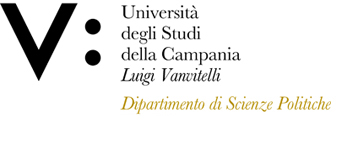Lucio CERCONE
Insegnamento di FISCALITÀ DELL'ENERGIA
Corso di laurea in SCIENZE POLITICHE
SSD: IUS/12
CFU: 6,00
ORE PER UNITÀ DIDATTICA: 36,00
Periodo di Erogazione: Secondo Semestre
Italiano
| Lingua di insegnamento | ITALIANO |
| Contenuti | PARTE I - Principi costituzionali del Diritto Tributario; Principi comunitari del Diritto Tributario; Il tributo e le prestazioni patrimoniali imposte; La struttura della norma tributaria; L'interpretazione della norma tributaria; - Gli obblighi strumentali del contrubuente; - Principi e nozioni in fase di istruttoria ed accertamento; |
| Testi di riferimento | Prima parte: Fabrizio Amatucci, Principi e nozioni di diritto tributario - ult. ediz. disponibile - Giappichelli Ed.: Capitoli: I, II, II, IV, VI e VII; Parte 2: Francesco Tesauro, Compendio di Diritto Tributario - ult. ediz. disponibile - UTET: Capitoli: 17, tutto; 18, limitatamente al par. 5; 19, limitatamente alla sezione I; 22, tutto |
| Obiettivi formativi | Nozioni di Base del Diritto Tributario con approfondimento sui principi contabili e redazione delle dichiarazioni fiscali. |
| Prerequisiti | nessuno |
| Metodologie didattiche | Lezioni frontali e interattive. Attività seminariali. Organizzazione di working classes relative a casi specifici. In particolare, |
| Metodi di valutazione | Prova orale. |
| Altre informazioni | La frequenza costante e attiva delle lezioni, pur non essendo obbligatoria, è fortemente consigliata.. Le frequenze saranno registrate attraverso schede di presenza che verranno fatte circolare durante le lezioni. |
| Programma del corso | Conoscenza e capacità di comprensione (knowledge and understanding). |
English
| Teaching language | Italian |
| Contents | PART I - Constitutional principles of Tax Law; Community principles of tax law; The tax and the patrimonial benefits imposed; The structure of the tax law; The interpretation of the tax law; - The instrumental obligations of the counter; - Principles and notions in the preliminary investigation and assessment phase; |
| Textbook and course materials | Part I Fabrizio Amatucci, Principi e nozioni di diritto tributario - ult. ediz. disponibile - Giappichelli Ed.: Capitoli: I, II, II, IV, VI e VII; |
| Course objectives | Basic notions of Tax Law with in-depth analysis of accounting principles and preparation of tax returns. |
| Prerequisites | NO |
| Teaching methods | Frontal and interactive lessons. Seminar activities. Organization of working classes related to specific cases. In particular, |
| Evaluation methods | Oral exam. |
| Other information | The constant and active frequency of the lessons, although not mandatory, is strongly recommended. The frequencies will be recorded through presence sheets that will be circulated during the lessons. |
| Course Syllabus | Knowledge and understanding (knowledge and understanding). |








